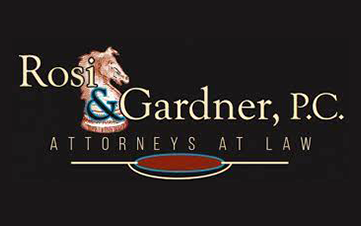Property Division Lawyer Traverse City
Property division (“asset division”) can lead to conflict in any divorce. After years of marriage, it can be difficult to separate and divide your assets. “Marital property” generally means all assets and property which were acquired or earned during the marriage. Common examples include homes, cars, furniture or furnishings, art, retirement accounts, pension plans, savings accounts, retirement accounts and benefits, and all other assets or investments accumulated during the marriage. The name is on the title or ownership document is not definitive; in most cases does not matter at all. If the asset was accumulated during the marriage, it is probably marital property.
What about “separate property?” In general terms, property received during the marriage, by inheritance or gift from outside the marriage, may be considered separate property. If that asset is kept separate, not commingled with marital property, and no marital property or efforts contribute to its maintenance or appreciation, then it ight retain its separate quality. A divorce court may, however, divide any increase in value, during the marriage, of a separate asset, if marital income, assets, or efforts contributed to that increase in value.
So, how does everything get divided? Do we have to liquidate everything and divide the money? In most cases, no. Some assets may be sold, and others allocated solely to one spouse or the other. Some assets, like retirement accounts, can be divided or transferred without liquidating them, and without incurring income tax penalties, if done properly.
There are two ways to divide the “marital estate” (the marital assets and the marital debts, collectively) in a divorce. Either you and your spouse can agree on the allocation of assets and debts between you, or you can leave the decision to a judge.
You and your spouse might come to an agreement through a number of methods. Mediation (before or after a divorce case has been filed) is a process of negotiation and discussion with the presence of a neutral third party, the mediator. Collaborative Divorce is an approach emphasizing an open process, orchestrated by Collaboratively trained attorneys and other professionals, aimed at reaching a complete settlement without any court intervention.
Once an agreement has been reached, you and your spouse can memorialize your agreement in a written contract referred to as a “property settlement agreement.” That agreement can then be adopted by the court, and incorporated into your final judgment of divorce.
If you and your suppose cannot agree on a fair property division, the court will divide and apportion your assets and debts, making what it determines to be a “fair and equitable” division of the marital estate.
The final result should be a fair and equitable distribution under all of the circumstances. Courts are not required to follow any rigid rules or mathematical formulas, but instead, must undertake a consideration of the entire case.
In Michigan, a divorce court must Courts consider the following factors:
- the length of the marriage;
- the spouses’ contributions to the marital estate;
- the spouses’ ages and health;
- the life status of the spouses;
- the spouses’ necessities, financial needs, and circumstances;
- the earning abilities of the spouses (meaning how much income each spouse could earn based on education, job skills, work history, and employment opportunities);
- the spouses’ past relations and conduct; and general principles of equity (fairness).
Rosi & Gardner, P.C. regularly handles the issue of marital property division in mediation and litigation proceedings. We can help you make sure that your marital property division is fair. Call Rosi & Gardner today at 231.941.5375 or contact us via email.
